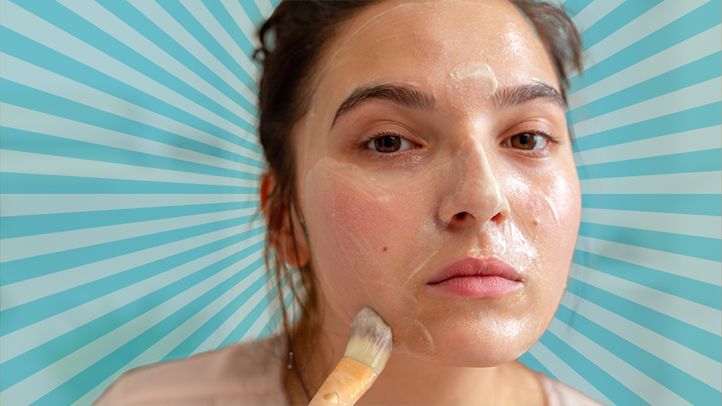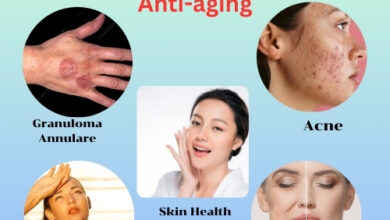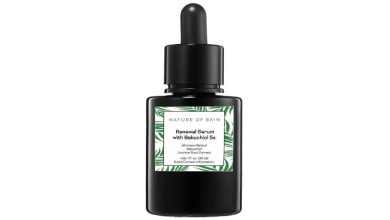Effective Tips for Clear, Healthy, Acne-Free Skin

Having clear, healthy, and acne-free skin is a goal for many people, yet it can often seem elusive due to various factors such as hormones, genetics, diet, and lifestyle. Acne is a common skin condition that affects millions of people worldwide, especially during adolescence, but it can persist into adulthood as well. While over-the-counter treatments and prescription medications isotretinoin 20mg can help, achieving and maintaining clear skin often requires a holistic approach. Here are some effective tips to help you achieve clear, healthy, and acne-free skin.
1. Establish a Consistent Skincare Routine
A consistent skincare routine is the foundation for clear skin. Skincare isn’t just about washing your face—it’s about using the right products in the right way for your skin type.
- Cleanse your skin twice a day: Use a gentle cleanser in the morning and evening to remove dirt, oil, and impurities. Look for cleansers that are non-comedogenic (meaning they won’t clog pores) and formulated for your skin type, whether it’s oily, dry, or combination.
- Moisturize regularly: Even if you have oily or acne-prone skin, moisturizing is crucial. Choose an oil-free, non-comedogenic moisturizer that hydrates your skin without making it greasy. This helps maintain the skin’s natural barrier and prevents overproduction of oil.
- Use sunscreen daily: Sun exposure can aggravate acne and lead to hyperpigmentation (dark spots). Use a broad-spectrum SPF 30 or higher sunscreen every day, even when it’s cloudy or you’re indoors. Opt for sunscreens designed for acne-prone skin to avoid breakouts.
2. Keep Your Skin Hydrated
Hydration is key for maintaining skin health. When your skin is well-hydrated, it can function properly, regenerate, and repair itself. Drink plenty of water throughout the day to help flush out toxins and keep your skin looking fresh. If you find it hard to drink plain water, add slices of cucumber, lemon, or berries for added flavor and nutrients.
In addition to drinking water, you can also use hydrating serums or toners that contain ingredients like hyaluronic acid to lock in moisture. This is especially important if you use acne treatments that can dry out the skin, such as benzoyl peroxide or retinoids.
3. Exfoliate Gently
Exfoliation helps to remove dead skin cells that can clog pores and cause breakouts. However, it’s important to avoid over-exfoliating, as this can irritate the skin and worsen acne. Aim to exfoliate 1-2 times a week using a gentle exfoliant, such as a product containing alpha-hydroxy acids (AHAs) or beta-hydroxy acids (BHAs). These ingredients help to dissolve dead skin cells and promote cell turnover, revealing smoother, clearer skin underneath.
For those with sensitive or acne-prone skin, chemical exfoliants (AHAs and BHAs) are often better tolerated than physical exfoliants (scrubs), which can cause microtears in the skin.
4. Choose Acne-Fighting Ingredients
Look for skincare products that contain acne-fighting ingredients to help prevent and treat breakouts. Some of the most effective ingredients include:
- Salicylic acid: A BHA that helps to exfoliate the skin and clear out clogged pores.
- Benzoyl peroxide: Kills acne-causing bacteria and reduces inflammation.
- Retinoids: Vitamin A derivatives that help to unclog pores and promote cell turnover. They are available in both over-the-counter and prescription formulations.
- Niacinamide: A form of vitamin B3 that helps to reduce inflammation, control oil production, and improve the skin’s barrier function.
- Tea tree oil: A natural antibacterial agent that can help to fight acne. It’s best used as a spot treatment or diluted to avoid irritation.
5. Pay Attention to Your Diet
What you put into your body can have a direct impact on your skin. While diet alone may not cause or cure acne, certain foods can trigger or exacerbate breakouts in some people.
- Avoid high-glycemic foods: Foods that cause a spike in blood sugar, such as refined carbs, sugary snacks, and processed foods, can lead to an increase in insulin levels, which can trigger acne. Instead, opt for whole grains, fruits, and vegetables.
- Limit dairy consumption: Some studies suggest that dairy, especially skim milk, may be linked to acne due to the hormones it contains. If you suspect dairy is affecting your skin, try cutting back on milk, cheese, and other dairy products to see if your skin improves.
- Incorporate omega-3 fatty acids: Omega-3s, found in foods like salmon, flaxseeds, and walnuts, have anti-inflammatory properties that may help reduce acne.
- Eat antioxidant-rich foods: Fruits and vegetables high in vitamins A, C, and E can help protect your skin from damage and promote healing. Green tea is also a great source of antioxidants and has anti-inflammatory properties.
6. Manage Stress Levels
Stress can wreak havoc on your skin by triggering hormonal changes that lead to increased oil production and breakouts. To reduce stress and its impact on your skin, consider incorporating relaxation techniques into your daily routine:
- Practice mindfulness and meditation: Even a few minutes of deep breathing or meditation can help to calm your mind and reduce stress.
- Exercise regularly: Physical activity helps to relieve stress, improve circulation, and promote overall well-being. Just be sure to shower after sweating to avoid clogged pores.
- Get enough sleep: Aim for 7-9 hours of quality sleep each night to allow your skin time to repair and regenerate. Poor sleep can lead to increased stress levels and breakouts.
7. Don’t Touch Your Face
Touching your face throughout the day can transfer dirt, oil, and bacteria from your hands to your skin, leading to clogged pores and breakouts. It’s also important not to pick or pop pimples, as this can cause scarring, inflammation, and infection. If you’re tempted to touch or pick at your skin, try keeping your hands busy with something else, such as a stress ball.
8. Use Clean Towels and Pillowcases
Dirty towels and pillowcases can harbor bacteria, oil, and dead skin cells, which can transfer to your skin and cause breakouts. Make it a habit to wash your pillowcases at least once a week and use a fresh towel every time you wash your face.
If you’re prone to acne, you might also consider switching to a silk pillowcase, as the smooth surface is less likely to cause friction and irritation on the skin.
9. Consult a Dermatologist
If you’ve tried over-the-counter treatments and lifestyle changes but are still struggling with acne, it may be time to consult a dermatologist. A dermatologist can assess your skin, identify the underlying causes of your acne, and recommend prescription treatments, such as topical or oral medications.
They can also perform in-office treatments like chemical peels, laser therapy, or extractions to help clear up stubborn acne.
Conclusion
Achieving clear, healthy, and acne-free skin is possible with the right approach. By establishing a consistent skincare routine, paying attention to your diet and hydration, managing stress, and avoiding habits that can clog pores or irritate your skin, you can significantly improve the appearance of your skin. Remember, patience is key—skin improvements often take time, so stick with your routine and consult a dermatologist if needed. With dedication and the right care, you’ll be well on your way to clear, glowing skin.




